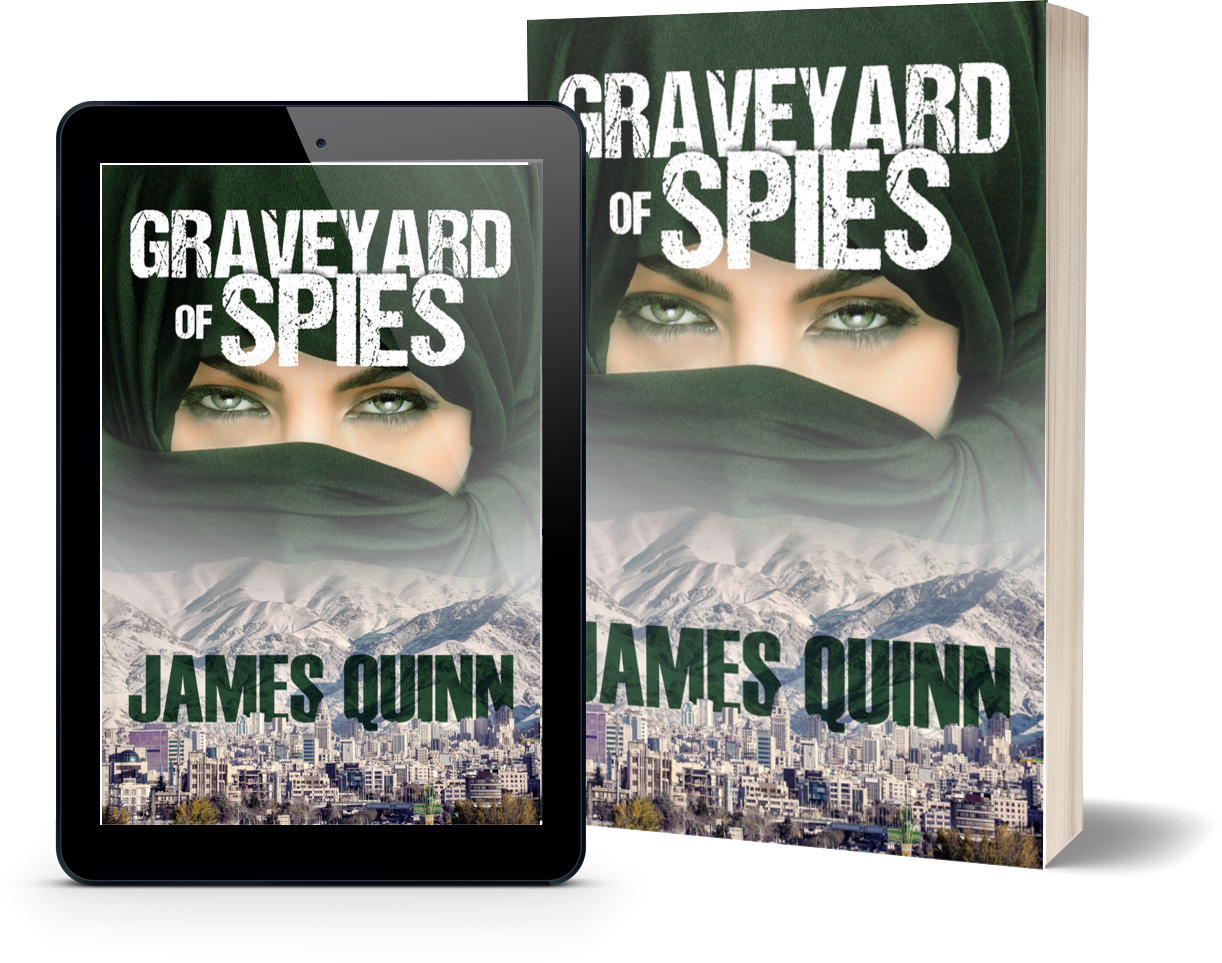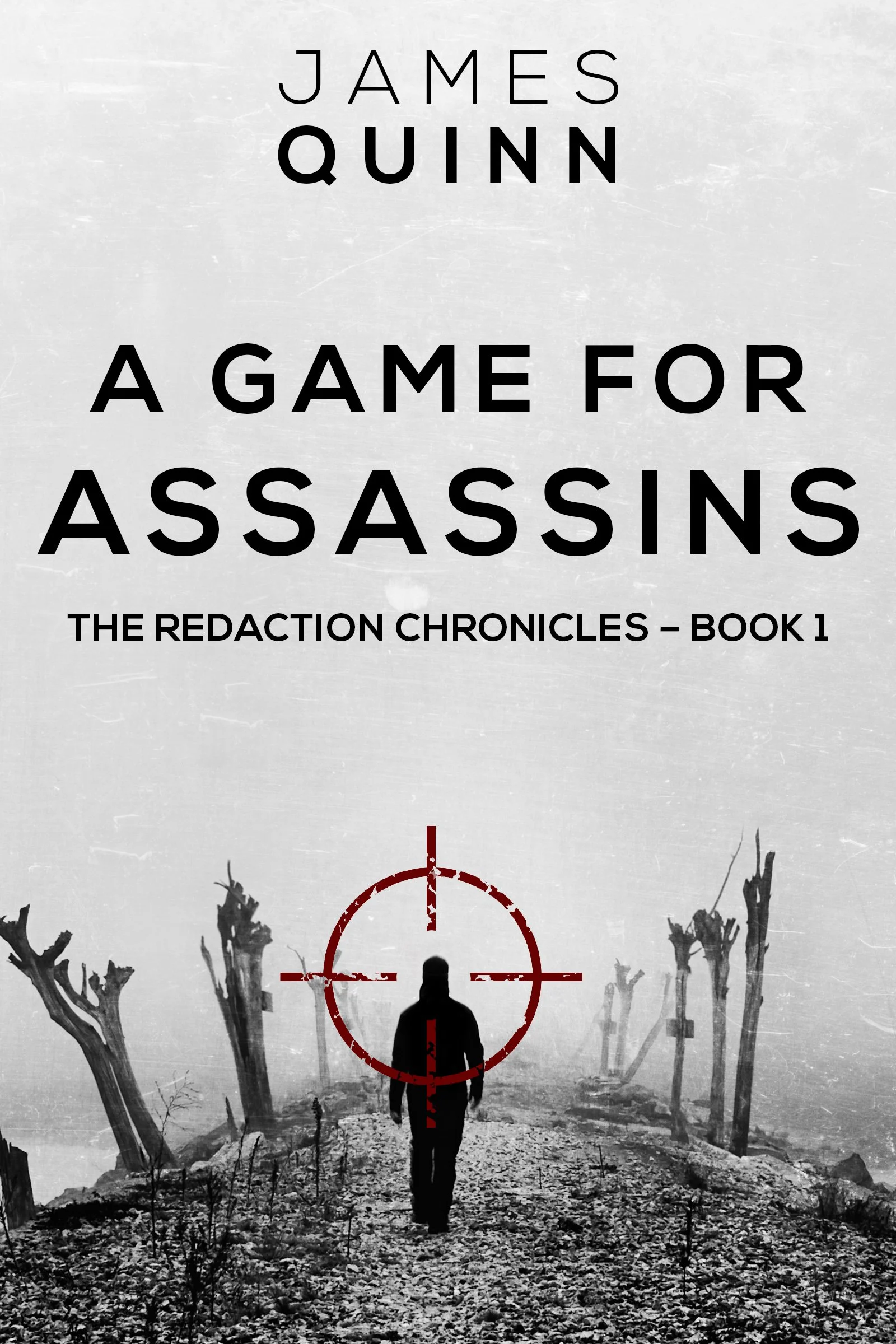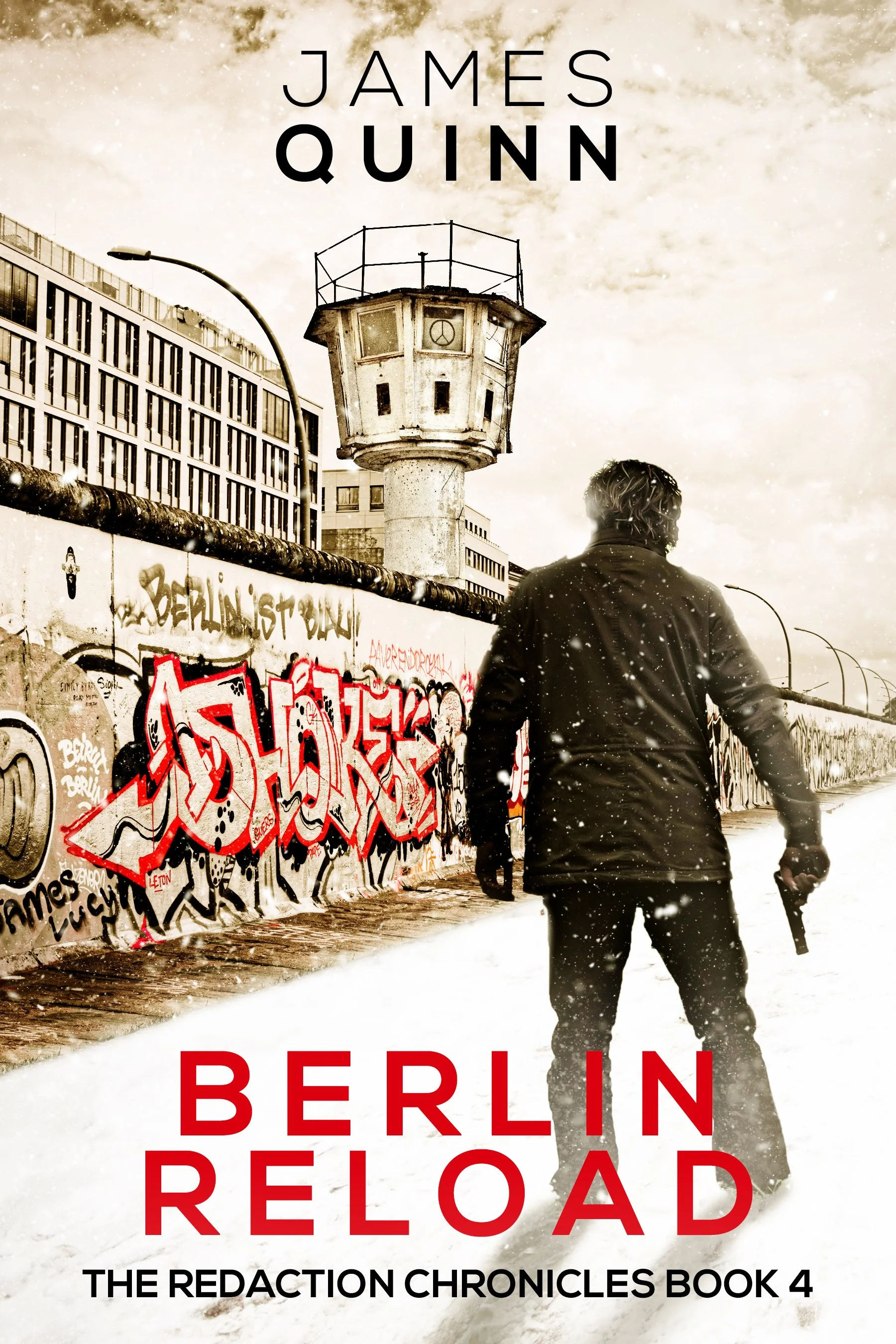Graveyard of Spies
Book summary
Retired MI6 agent David Harkness is drawn out of seclusion when his daughter vanishes in Iran. Set against the tension of 1970s pre-revolutionary Iran and modern terrorism, Graveyard of Spies follows David’s perilous return to espionage, uncovering betrayal and risking all to protect his family.
Excerpt from Graveyard of Spies
Barcelona, Spain, 2007
I was on my second Cortado when Fallon found me.
In fact, I had barely touched the coffee glass to my lips, had not even tasted the bitterness and silky cream, when the silhouette of a man interrupted the sunlight.
My morning routine had been the same the previous day and the day before that and that… the same for the past three years whilst I was living in Barcelona. I would rise early, even in the winter, shower, dress and then leave my little apartment on the Placa del Pi that overlooked the church Santa Maria del Pi. The area was known for its artists and Bohemian lifestyle which suited me just fine as, above all else, these days I counted myself as a kindred spirit.
Once out on the street, I would take my time strolling through the winding streets of the Gothic Quarter to buy some ingredients for lunch and dinner, maybe some wine, a newspaper, whatever I needed and all the while trying to ignore the pungent smell of the backed-up drains that all Barcelonians come to live with and learn to ignore eventually.
On my return journey, I would stop off to have my regular morning coffee at a little hole-in-the-wall, family-run café in the piazza that was opposite my apartment. It was my secret pleasure and my safe space. I would take my habitual seat outdoors in the shade and watch the world go by as I sipped at my usual Cortado. I felt like I was among friends and family here, my own family having long since dispersed. I would talk with Senor Roberto, the robust proprietor, about the rivalry he was having with the big chain coffee shops on La Rambla, discuss the state of the economy with the regulars and enjoy the collegiate atmosphere.
Twice a week, I would take a shortcut down the back streets to seek out Senor Conte’s book emporium; Llibreria de Excellencia. There, I would wind my way through the narrow shelves and seek out new treasures for my collection. Books about Catalan art, biographies of the great maestro Gaudi, occasionally even one of Hemingway’s works; again, it would depend on my mood.
Regardless of my purchase, I was always guided and advised, and bowed to his superior knowledge, by the great Senor Conte himself. Senor Conte looked like a bookseller and an academic; tall, thin, bespectacled and patrician-looking. In my mind I imagined he had always looked like this, even as a child. When the mood took him, Senor Conte would take out, with a flourish, a rare and three quarters full bottle of Ratafia, pour us both a shot glass and spend the next few minutes discussing the classics of the 20th Century – sometimes Greene, sometimes Hemingway, sometimes Steinbeck, sometimes Vonnegut. Then I would go on my way out into the afternoon sun; new book in hand, slightly drunk and all the better for it after having spent some time with a good friend.
Occasionally I would stretch my legs a little further, sometimes with notebook in hand in case I was inspired to write, and then move along to La Rambla and head down to Port Vell to sit and admire the coastline and harbour for an hour, enjoying the cool breeze.
Then it was back to my second floor El Jardin Catalan apartment on Place del Pi and there I would work on whatever writing project was on my desk. Was it the latest political piece for one of the broadsheets in London or New York or Paris? Was it my next novel that was frustratingly at a logjam in my mind and that the publisher was harassing me to complete finally… once and for all, David, please!
And that was my comfortable life, until the man appeared and shattered my routine. The silhouette introduced himself as Fallon, no first name given and none asked for, at least not by me.
“I am talking to Mister David Harkness, the eminent author and journalist?” he said, in a thinly veiled Belfast accent. The way he framed the question told me that he already knew the answer; it was nothing but a formality.
“Yes, you are.” For my sins, I thought, but omitted that from the conversation.
“That’s grand. I’m Fallon. I’m a friend of a friend.”
I lowered my sunglasses down to the bridge of my nose and inspected him over the top of them. He didn’t look like the type of friend I would have or want. Fallon, if that was his name, was mid-thirties, squat like a boxer and with a rough face that life had chewed on. He had the tourist’s untucked short-sleeve shirt over jeans and kept his hands near his waistband in case of a tactical emergency. I recognised the stance because I had used it myself in many situations in the past.
“What friend?” I asked, confused. I was alert. I was ready. Was this an old enemy looking for a soft target? Was it a disgruntled ex-husband or boyfriend from one of my many romantic liaisons? Or was he just some overzealous reader of my work that wanted an autograph, or to comment on my newspaper articles and novels. The jury was still out.
“Old friends, David, may I call you David?” said Fallon reasonably, but making a point to accent the “friends”.
“Let’s start with Mr Harkness for now,” I said, in a harsher tone than I intended. Fallon seemed not to take offence and didn’t react. But I reacted; the mention of “friends” had made me react in a big way. Was his meaning genuine or was it a secret code for what I feared it would be?
“Friends from the Embassy in Madrid, I represent them and I’ve been asked to set up a meeting with you.”
And there it was in the blink of an eye. I knew exactly what and who Fallon was. He was a bag-man, errand boy and all-round crash contact man on the payroll of the Secret Intelligence Service, MI6, station in the capitol.
“Can I have a seat?” he said, pointing to the metal chair sat at the table opposite me. I nodded and he took the bait. At least I wouldn’t have to crane my neck and squint to see him.
Fallon looked around, took in the street and the small piazza that was the hub of the area. “It’s a nice place you got here. Cultural, classy. I’ve never been to Barcelona before. I’m down on the Costas myself. Bit more rough and ready, if you get my meaning.”
I got his meaning alright, even through his concealed West Belfast accent. I would have bet in his time Mr Fallon had carried out some dirty tricks for the Brits in Northern Ireland. Maybe taking care of touts or being a tout himself. Maybe the Costas was a reward for all his hard work.
“I’m sorry, Mister… ?” I said, playing the forgetful middle-aged man.
“Fallon.”
I nodded and put a smile of sympathy on my face like a mask. “Of course, Mister Fallon. I think you are possibly confusing me with someone else. I don’t know anyone in the British Embassy in Madrid or anywhere else for that matter. I think you are wasting your time here, but at the very least let me buy you a coffee before you enjoy the rest of Barcelona.”
“I was sent by Davenport. Terence Davenport. Does that name ring a bell?” said Fallon brusquely, his eyes trying to penetrate through my dark sunglasses. It wasn’t working, but good for him for trying.
It absolutely rang a bell. Terence Davenport, MI6 Desk Officer responsible for Near East Operations including Iraq, Iran and all the other colourful hot spots in the region. Once, back in the day, he had been my link man. I was out on the ground while Davenport was safely ensconced in his office. I got the information and Davenport passed it up the chain to the intelligence aristocrats. We were a team and a bloody good one at that.
Not that I would have told any of this to Fallon. I didn’t know who the hell he was; just some chancer turned up and dropping a few names in the hope I’d let him into old secrets. He could piss right off. Instead, I just droned on about how I may have known a Davenport once, Arthur Davenport, big in Fleet Street, is that who he meant?
And all the while Fallon was sitting there, slowly shaking his head and listening to my very polite and low-key excuses about how I thought this was all just a case of mistaken identity and…
“Mr Davenport said that you would do this. He told me to cut through the bullshit and ask you – directly, you understand – he told me to ask you about Calisto. What do you know about Calisto, Mr Harkness?” said Fallon, his voice slightly raised and the West Belfast bark dominant.
I listened, heard the words, heard the name and paused. Outwardly, my expression was serene, but inside, my mind was in turmoil because in one brief sentence Fallon had shattered my peace, causing two separate parts of my past to smash together like literal atoms.
And in that moment I wished the ground could have swallowed me up whole.
***
What could I tell Fallon about Calisto?
If I had the mind to, which I didn’t, I could tell him everything. I knew Calisto better than anyone. Better than any lover, husband or priest ever would. I had recruited Calisto. I had primed Calisto and I had sent her on her way into the hands of my former Service.
That was what Fallon or his superiors wanted to know; the career of an asset. But, if I searched deep into the well of my memories, I could have told them so much more about Calisto. I could tell them about my first memory of her, holding her wrapped in my shirt as the midwife in the Maternity wing told me that “Baby needs skin on skin in the first few moments”.
I could tell them about watching her dance as a toddler in our garden. She was dressed in woolly tights and a floral print dress as she spun round and round to the rock music playing on the radio, until finally she ran out of steam and landed with a plop on her bottom.
Her first day in pre-school as I waved her off and she strode down the pathway confidently, not looking back, knowing full well that she was going to own this and would probably be running the place within a week.
I remember her as a ten-year-old! The pair of us, standing holding hands, dressed in black, as we stared down in shock at her mother’s grave; neither of us speaking, the fellow mourners distant in the background. An almost psychic bond connecting us, neither of us needing to speak, everything translated in the squeeze of a hand or the gentle tilt of the head.
I remember the anger when she was a teenager as she rebelled, with boys and drink and yes, possibly drugs, and the soul-crushing despair as we argued and wouldn’t speak for days. The wounds I still carry with me in my heart, even now, that I had let it get to that stage.

















Praesent id libero id metus varius consectetur ac eget diam. Nulla felis nunc, consequat laoreet lacus id.